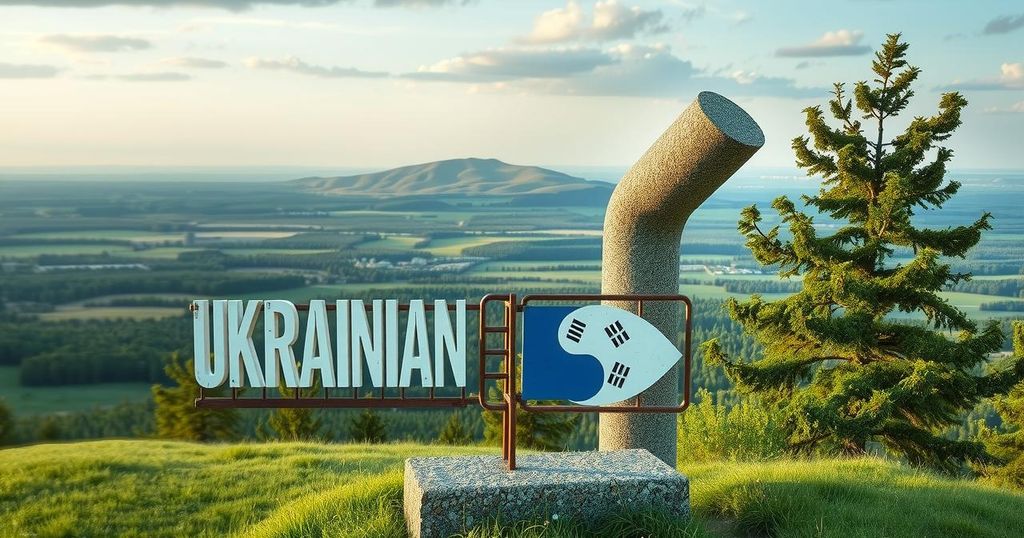World news
ASIA, BIDEN ADMINISTRATION, DEFENSE, ENERGY INFRASTRUCTURE, EUROPE, EUROPE/ASIA, INSTITUTE FOR THE STUDY OF WAR, KIM JONG UN, KIM YONG BOK, KOREA, NORTH, KOREA, SOUTH, MILITARY, PYONGYANG, RUSSIA, SEOUL, TRANSITIONAL JUSTICE WORKING, TRANSITIONAL JUSTICE WORKING GROUP, U. N. SECURITY COUNCIL, UKRAINE, VLADIMIR PUTIN, WAR, ZELENSKYY
Daniel O'Connor
0 Comments
Human Rights Groups Urge Ukraine to Permit North Korean POWs to Seek Refuge in South Korea
Rights groups are urging Ukraine to let North Korean POWs seek refuge in South Korea to avoid execution upon repatriation. The appeal follows Ukraine’s capture of two North Korean soldiers amid escalating military ties between North Korea and Russia. Allowing defections could potentially weaken Pyongyang’s support for Russia.
Human rights organizations are advocating for Ukraine to permit North Korean prisoners of war (POWs) to seek asylum in South Korea rather than returning them to North Korea, where they may face extreme punishment or execution. An open letter was sent to Ukraine’s embassy in Seoul, signed by the Transitional Justice Working Group and eight additional groups, emphasizing the risks of repatriation.
This call to action follows the capture of two North Korean soldiers in Russia’s Kursk region in January. President Zelenskyy has proposed the option of exchanging these soldiers for Ukrainian detainees in Russia, however, activists contend that such actions would contravene Article 45 of the Geneva Convention, which forbids the forced repatriation of individuals who are at risk of persecution.
Reports indicate that North Korea has dispatched between 10,000 to 12,000 troops to Russia since 2024. This deployment represents the largest overseas military engagement for North Korea since the Korean War. These developments reflect the strengthening relationship between Kim Jong Un and Vladimir Putin, especially following their mutual assistance agreement established during a summit in June 2024.
North Korean troops mainly serve as light infantry within Russian units, using forged documents to disguise their identities. They participate in defensive operations and assist in trench warfare, while higher-ranking North Korean officers oversee operations from safer positions. Ukrainian intelligence has highlighted the involvement of three North Korean generals in this military engagement.
The loss of North Korean soldiers has been significant, with estimates suggesting over 3,000 soldiers, or approximately 40% of the original contingent, have been killed or injured as of January 2025. Moreover, after a brief hiatus, North Korea is reportedly sending a new wave of 3,500 soldiers to undergo training in Russia’s Far East region.
North Korea benefits materially from this military cooperation with Russia, receiving increased oil and essential commodities in return. Additionally, a South Korean intelligence-affiliated think tank estimated that North Korea garnered around $540 million from arms sales in 2023, predominantly to Russia.
Furthermore, the Institute for the Study of War describes the conflict in Ukraine as a “vital learning opportunity” for North Korea’s military, enabling it to assess its weaponry against Western systems and gain practical combat experience. This alliance serves to bolster North Korea’s anti-Western rhetoric and may alter the strategic landscape on the Korean Peninsula.
This military collaboration contravenes U.N. Security Council Resolution 1874, which forbids North Korea from exporting military personnel or arms and has prompted international backlash along with additional sanctions from the United States and South Korea.
Human rights advocates suggest that permitting North Korean POWs to defect could motivate other soldiers to surrender, thereby weakening Pyongyang’s support of Russia. South Korean lawmaker Yu Yong-weon, who visited Ukraine in February, noted that one captured soldier expressed a willingness to defect, while the other remained uncertain.
In summary, human rights groups are pressing Ukraine to allow North Korean POWs to seek refuge in South Korea to avoid dire consequences upon repatriation. This situation arises amidst North Korea’s substantial military involvement in Russia, facilitated by increasing ties between Kim Jong Un and Vladimir Putin. The implications of this cooperation extend to military, economic, and strategic domains, drawing condemnation and sanctions from the international community.
Original Source: www.dailynk.com




Post Comment